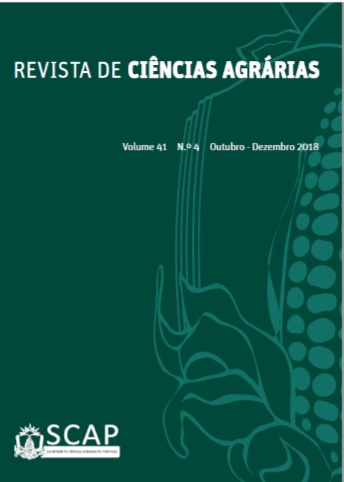Water absorption and desiccation tolerance in Bromelia reversacantha Mez seeds
DOI:
https://doi.org/10.19084/RCA18143Abstract
Bromelia reversacantha is an endemic species of some areas of Cerrado rupestre, Brazil, threatened with extinction and that presents ornamental characteristics quite interesting. This species is still poorly studied and the physiological behavior of its seeds during and after drying and storage is practically unknown. Thus, in this study we aimed to analyze the imbibition pattern of seeds stored over a year (first experiment) and the effects of dehydration on seed germination capacity (second experiment) of B. reversacantha. Ripe fruits were collected and after the seeds were extracted, washed and then dried in the shade. In the first experiment, the treatments were distributed in a completely randomized design in a triple factorial scheme (2 x 7 x 11), with two storage conditions (laboratory and cold room); seven storage periods (time zero, two, four, six, eight, ten and twelve months); and eleven periods of imbibition (time zero, 1, 2, 4, 8, 16, 24, 36, 48, 60 and 72 hours from the beginning of imbibition); in eight replicates of 25 seeds per treatment. In the second experiment seeds were used two months after harvest in a completely randomized design, with four treatments (water contents), 12.8%, 11.1%, 8.7% and 6.8%, in four replications of 50 seeds. It is concluded that the seeds of B. reversacantha absorb water in an average period of time of 29.8 hours for the change from phase I to phase II of the imbibition to occur, evidencing no integumentary dormancy. In addition, it was verified that the seeds of B. reversacantha have orthodox behavior, being able to be dewatered at 40 ° C up to 6.8% moisture without prejudice to their germination capacity.


